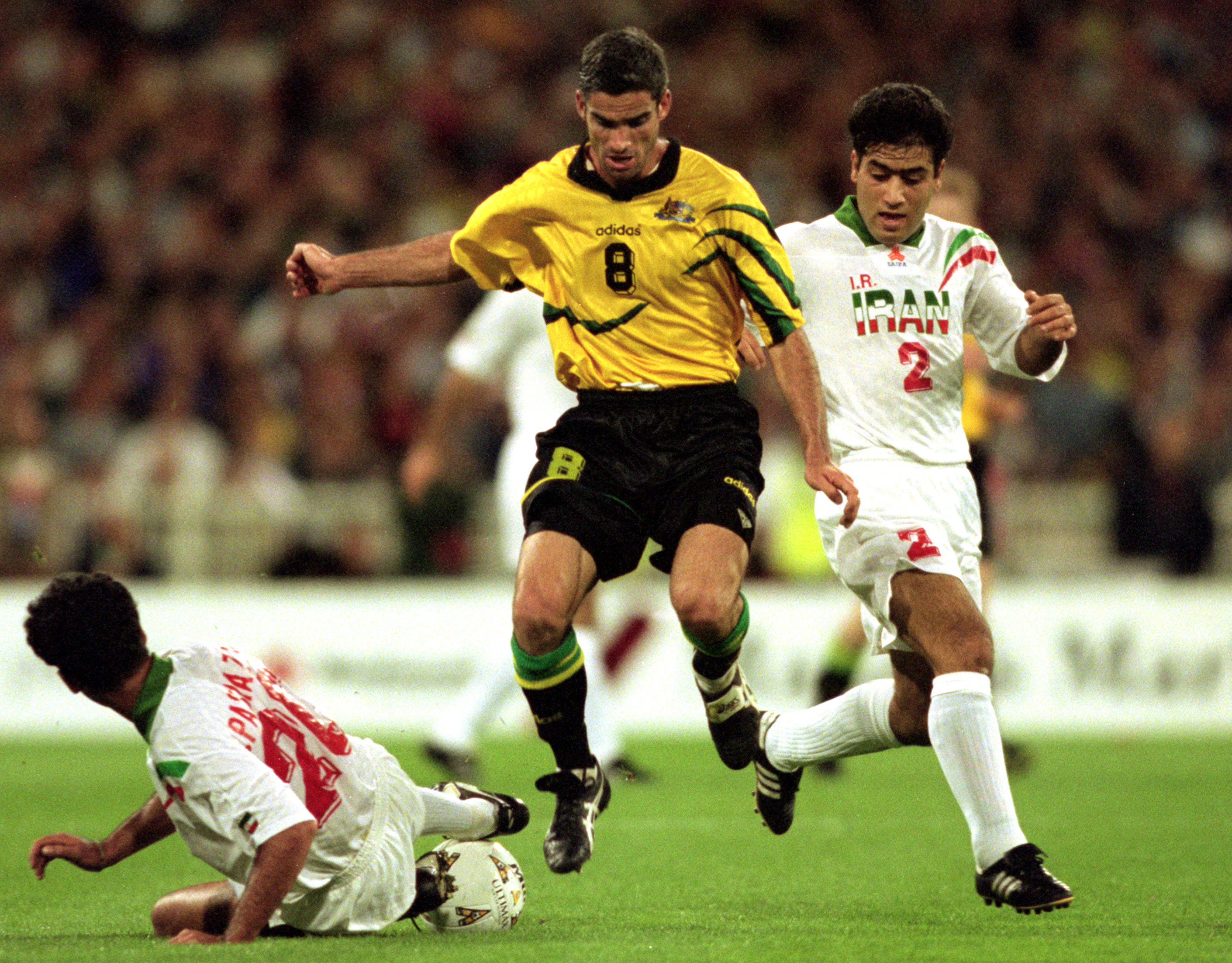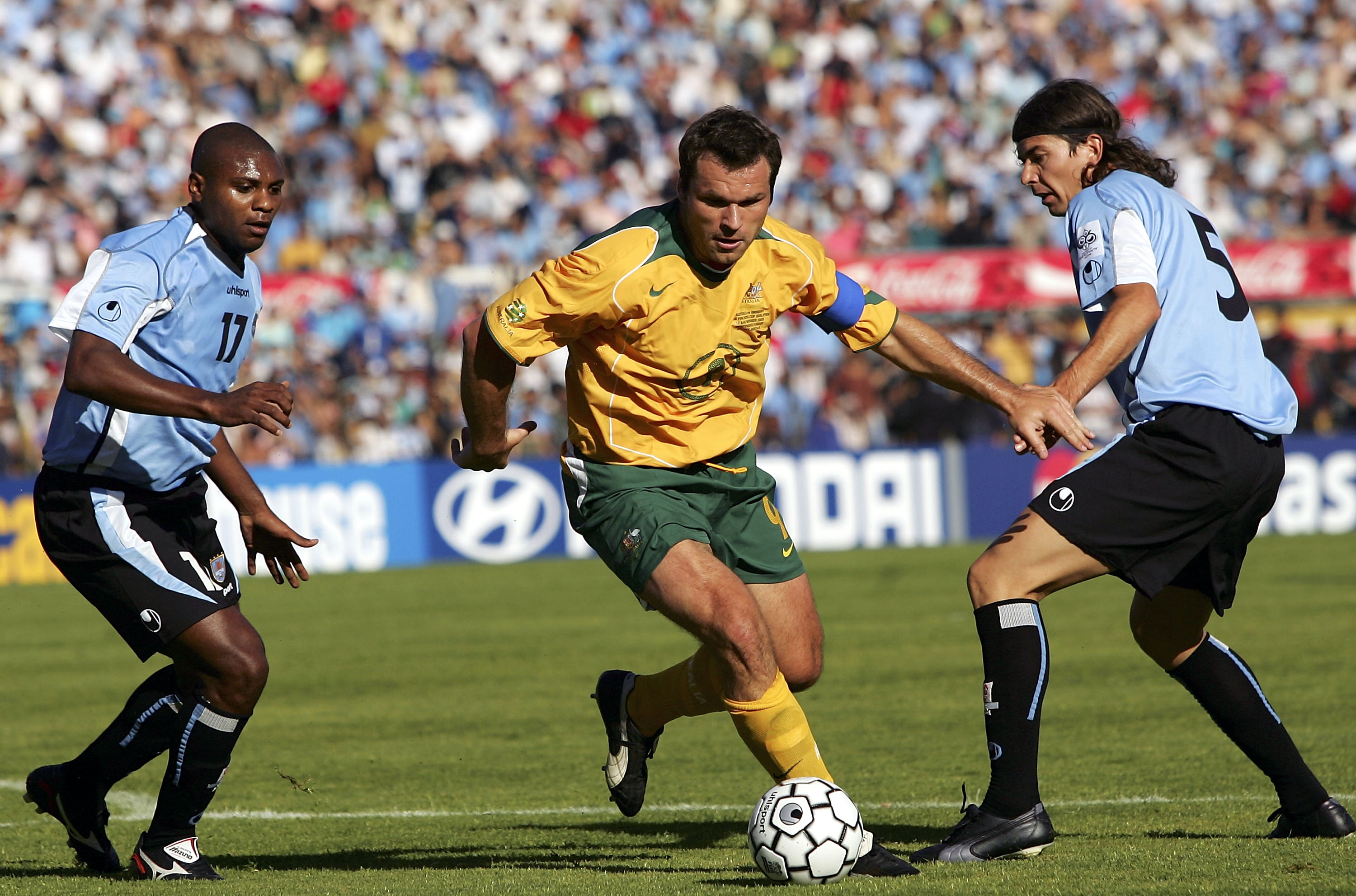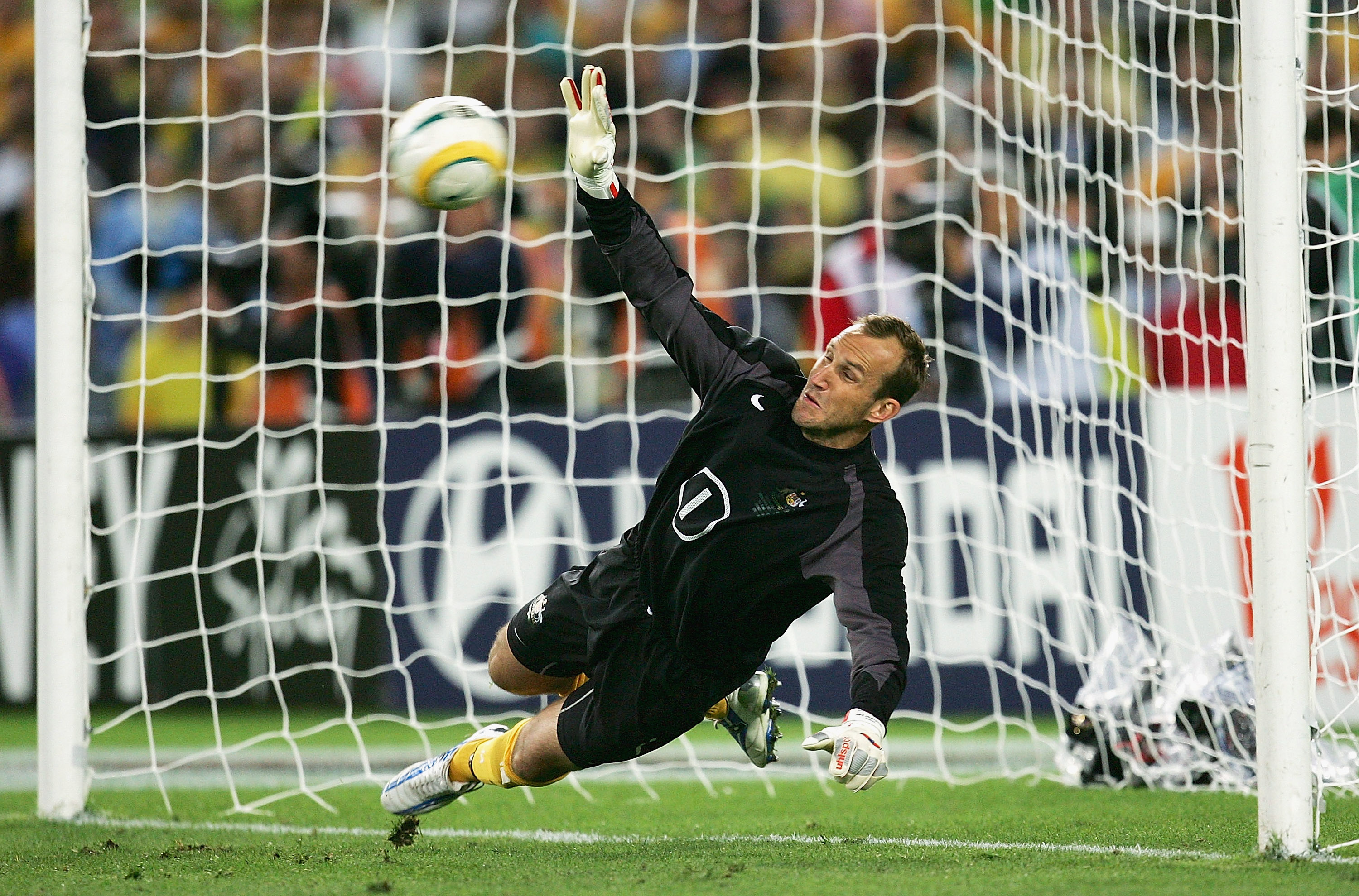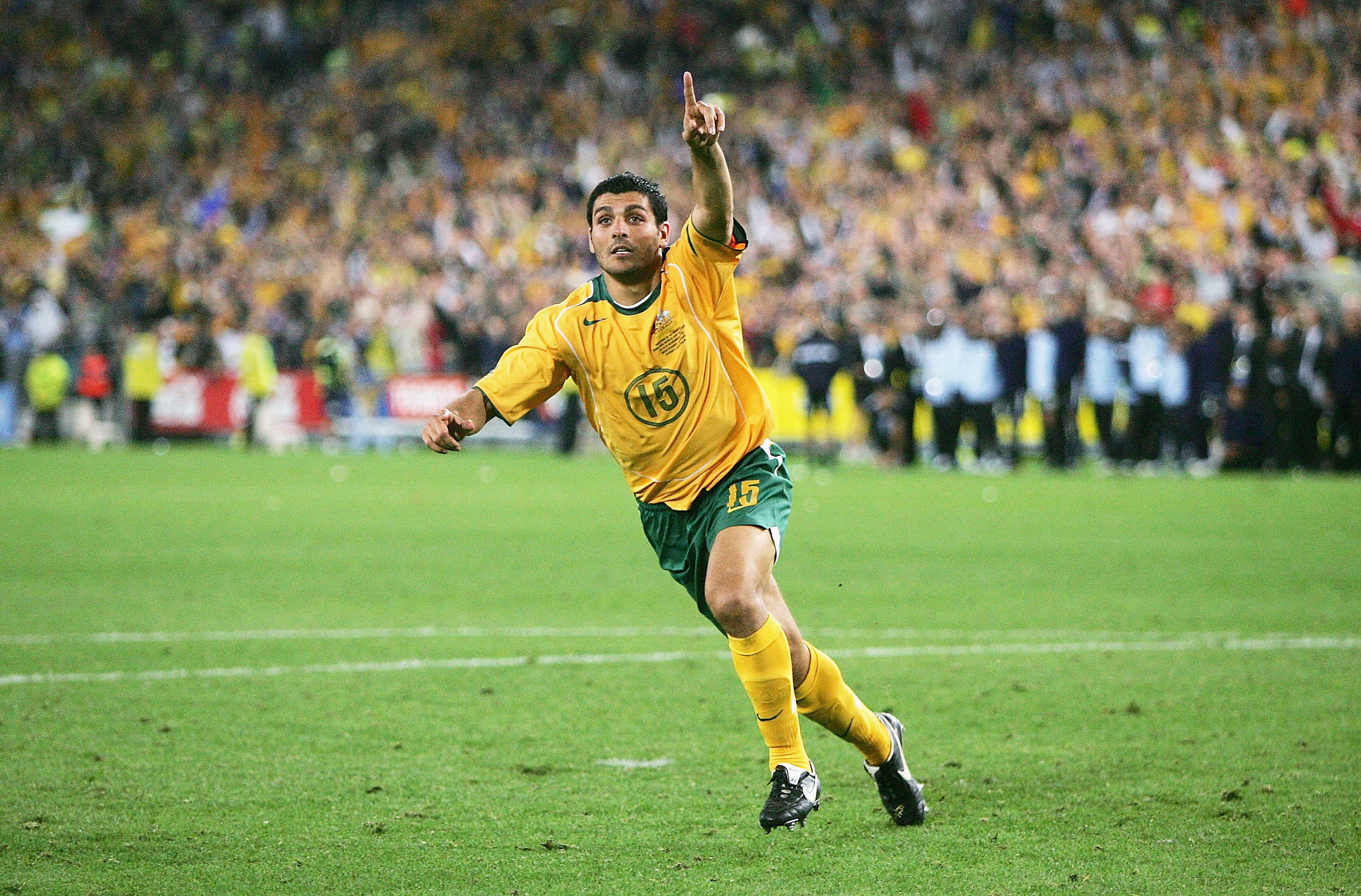It was the best of times, it was the worst of times; it was a time of hope and desire, it was a time of doubt and despair; the age of expectation and, finally, it was the age of exhilaration and wild, wild euphoria.
Australia's long despairing quest to reach the World Cup Finals had finally been fulfilled.
On a magical night in Sydney in November 2005 after a dramatic penalty shootout, Australia had finally done it.
The roars of the crowd, the whoops of joy from even the supposedly hardened and objective media in the press box, Craig Foster's incoherent meltdown in the commentary box and the players' frenzied sprints as they raced to catch the match-winning penalty taker John Aloisi, all signified a kind of mass hysteria.
Men and women, young and old, football diehards and those whose connection with the Socceroos was only marginal: that night, all were devoted supporters. At the Sydney Olympic Stadium, in the streets, in pubs and bars Australia wide, all back slapped, slammed down beers and shots and celebrated what was, for perhaps the first time in Socceroo annals, a cathartic triumph that resonated with the nation at large.
Looking back from this point 20 years on, it still seems like a dream, a fairytale, a night for the ages whose emotion, drama and intensity has rarely been approached, never mind matched.
On that night, I was fortunate enough to be one of the main writers for the Melbourne Age and Sydney Morning Herald, covering the game alongside my great colleague and much missed companion and friend Michael Cockerill, a towering (literally) figure in the domestic game who had waited, hoped and dreamed of the Socceroos finally making a World Cup.
Even he, the hard-nosed professional, was a bundle of nerves beforehand - not that he was alone as the barracking, the oohs, ahhs and gut-wrenching sighs from those sitting with laptops attested as Uruguay efforts on goal sailed narrowly wide.
There was a real feeling that now, with the Golden Generation reaching maturity, this was Australia's moment.
But there was also a dread, a fear that if things didn't go well this time, then the game would take another body blow.
The A-League had just begun its first season shortly before: crowds were strong, new names and faces (like Archie Thompson, a squad member on this night but a glowing star for the nascent Melbourne Victory) were on the way to becoming household names and media interest was building for content of a sport which had hitherto come a long way down the pecking order.
Everything was on the up....would a painful loss on this night prick the balloon and leave those whose dreams for Australia to become a soccer power in tears once more?
I had been at the MCG eight years earlier when a really good Australian team (including the likes of Paul Okon, Ned Zelic, Craig Moore, the Vidmar brothers Aurelio and Tony, younger versions of Harry Kewell and Mark Viduka, the larger than life goalkeeper Mark Bosnich and the aforementioned Foster had been in the starting eleven) when the Socceroos blew it against Iran.

I had been in Melbourne in 2001 when a Kevin Muscat penalty had given Australia a slender 1-0 advantage to take to Uruguay for the second leg of the intercontinental play off.
I had then flown to Montevideo, where any Australian illusions were instantly shattered as the team received a rough welcome at the airport from spiteful, jostling fans: the reality bit even harder on the pitch, where the Uruguayans overturned the 1-0 deficit by winning 3-0.
A picture of a weeping Tony Vidmar captured the mood of desolation as the Australians trudged off the pitch.
Four years later, the Socceroos travelled to Montevideo again, but under Guus Hiddink put in a defensively determined performance, restricting their hosts to a 1-0 win.

The FFA had left nothing to chance this time, securing a private charter flight complete with physios and medical treatment tables to assuage any ills or injuries as the Socceroos left straight away for Sydney: their opponents had to travel on commercial flights, and arrived much later with less time to get over jet lag and prepare.
The tension around Sydney for the last 72 hours before kick-off was palpable, the excitement and trepidation visceral.
The feeling was that this time would be different and the enmity of the Australian fans was stoked all the more when Alvaro Recoba, Uruguay's key midfielder and at the time the world's highest paid player with his club side Inter Milan, suggested that the South Americans had a divine right to be at the World Cup because they were a traditional football nation, unlike these upstart Australians.
The normally placid Aussie fans booed the Uruguay anthem while Hiddink had one major tactical surprise in store, leaving Kewell on the bench. After half an hour, he replaced the defender Tony Popovic (the current CommBank Socceroos boss) with Kewell, and it was just four minutes later that the latter's involuntary assist (he completely miskicked a shot at goal) allowed Bresciano to strike home to put the Socceroos one up on the night and level on aggregate.
From this point on, it was a battle of nerves. Uruguay knew that if they scored a precious away goal, then Australia would have to score three, while the Socceroos knew they had to at least keep a clean sheet to take the tie to extra-time and penalties.
Cometh the hour, cometh the man.
Hiddink, anticipating a shoot-out, had considered replacing Mark Schwarzer with the giant Zeljko Kalac for the penalties, reasoning that the taller second choice keeper might have a better chance in the one-on-one duels. But the Dutchman had already used his substitutes by this time, leaving Schwarzer in situ.
Such is fate.

Schwarzer was magnificent in the clutch moments, saving two Uruguayan spot kicks to give Australia the edge. John Aloisi knew, as he walked forward for the final kick, that if he scored, he would become the hero of a nation and take his team to the World Cup for the first time in 32 years.
The rest is history...the ball hit the back of the net, the crowd erupted, Aloisi took off his shirt and began a sprint that might have rivalled Usain Bolt, pandemonium ensued and the mood of joy and delirium took over.

Even people like me, frantically tapping and rewriting the script in the media room as each penalty was scored or missed, could finally stop worrying, hit the send button on the laptop and look forward to the celebrations.
And what celebrations they were, but that's another story...
Michael Lynch is a freelance writer based in Adelaide and Melbourne. He was a soccer writer at The Age and SMH for 23 years.
